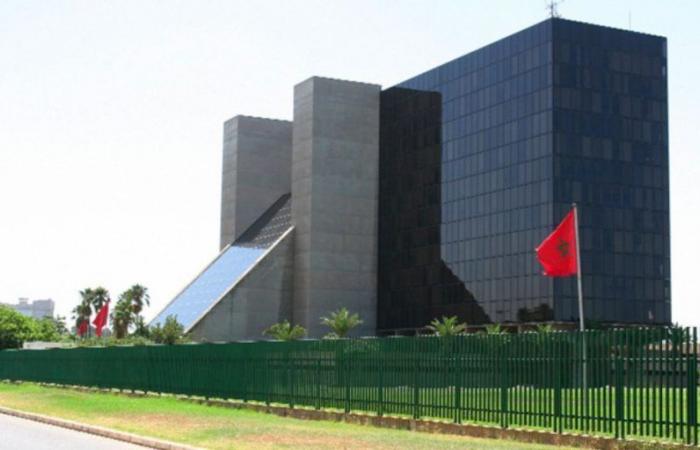OCP Africa has made significant progress in its plans to transform agriculture in Africa. Through strategic investments, strong partnerships and technological innovations, the company has strengthened its leading position in the African agricultural sector.
OCP Africa, a subsidiary of the OCP group and a main player in the supply of fertilizers adapted to African countries, continued over the past year to play an important role in the transformation of agriculture across the African continent. With its commitment to sustainable development and improving farmers’ livelihoods, the company has implemented several strategic initiatives. These actions aim not only to increase agricultural productivity, but also to strengthen local capacities and promote environmentally friendly agricultural practices.
The review of the past year reveals significant progress and fruitful partnerships that lay the foundations for a promising future for African agriculture. Mohamed Anouar Jamali, CEO of OCP Africa, says that “we firmly believe that our model of innovation, collaboration and investment will enable Africa to take advantage of modern technologies for the modernization of its agriculture. In 2023, we have made significant progress, but we see even more potential for the future. Our initiatives not only aim to improve agricultural productivity, but also to transform the lives of farmers and contribute to the sustainable development of the continent.
Indeed, according to the operator’s annual report, in 2023, the latter significantly increased its production capacities with the inauguration of new blending facilities, notably in Bugesera, Rwanda. This high-tech plant produces customized fertilizers to meet the specific needs of local soils and crops, thus increasing agricultural yields and farmers’ incomes. The annual capacity of the plant reaches 100,000 tons, with a storage capacity of 25,000 t. The main objective of this plant is to provide tailored solutions that maximize yields while minimizing environmental impact.
Broadening the scope of action towards agro-industry
OCP Africa has also expanded its scope to include the agribusiness sector, recognizing the immense potential of the African agribusiness market. With 24% of the world’s agricultural land but only 18% cultivated, Africa has enormous potential to increase its agricultural production.
OCP Africa’s objective is to modernize agriculture and the agri-food industry, thus meeting the growing demand for food products on the continent.
Currently, African countries import about $35 billion worth of food each year, a figure that could reach $110 billion by 2025. In response, OCP Africa plans to integrate agricultural production, processing and marketing into its core business, leveraging its expertise in fertilizer marketing and adopting cutting-edge agricultural practices.
Development of hubs for farmers
OCP Africa has established more than 140 farmer hubs with the goal of increasing this number to 500 by 2030. These hubs provide farmers with essential inputs such as fertilizers, seeds and crop protection products, as well as financial services, training and soil testing.
In 2023, 47 new hubs were inaugurated, strengthening farmers’ access to the resources needed for more efficient and sustainable agriculture. These hubs play a crucial role in bringing solutions directly to rural communities, reducing barriers to accessing agricultural inputs.
Furthermore, the operator has strengthened its strategic partnerships with local and international institutions. For example, in collaboration with the Syngenta Foundation, the company has added eight new horticultural greenhouse hubs, bringing the total to 41 hubs. These partnerships aim to provide quality seeds, inputs, training and support services to more than 50,000 smallholder farmers.
Additionally, OCP Africa has worked with local governments to develop subsidy programs to reduce fertilizer costs for farmers, increasing access and adoption of these essential inputs.
Ambidextrous model
For 2024, OCP Africa aspires to become an ambidextrous organization, capable of reconciling short-term efficiency with long-term growth. The seamless cooperation between operational and business units will enable a continuous flow of innovation, ensuring the company’s competitiveness both in established sectors and in new opportunities.
This approach aims to balance immediate performance objectives with long-term strategic development initiatives, leveraging data and advanced technologies to optimize operations and results.
Note that the launch of the “AI Factory” is planned for 2024. This factory of innovative tools will create a virtuous cycle, going from data collection to the design of highly adapted solutions thanks to artificial intelligence and machine learning.
This initiative aims to optimize the use of agricultural resources on the ground, providing precise and efficient solutions that meet the specific needs of African soils and crops. The AI Factory will combine the powerful capabilities of artificial intelligence, machine learning and analytical tools with deep knowledge of smallholder farms and African soils, to create unique and targeted solutions.
Expansion of partnerships
OCP Africa will continue to establish and strengthen partnerships with key stakeholders in the agricultural sector. The aim is to promote sustainable agricultural practices and strengthen agricultural value chains through new collaborations with international organizations, local governments and private actors. These partnerships are essential to create synergies, share knowledge and resources, and maximize the impact of agricultural development initiatives on the continent.
Responding to the growing demand for food products, OCP Africa will develop model commercial farms in partnership with local farms in Côte d’Ivoire and Rwanda.
These farms will use modern techniques, such as precision farming and mechanization to improve agricultural yields and food security. The pilot projects will aim to demonstrate the effectiveness of these techniques and encourage their adoption on a larger scale, by offering concrete examples of success and providing technical and financial support to partner farms.
Key figures for 2023
The year 2023 was marked by significant achievements. More than 289,000 farmers were affected by the Agribooster program, providing them with guaranteed access to quality inputs and agricultural training. The GIS project collected data on 3,236,708 plots, providing valuable information for optimizing agricultural practices. Finally, 341,065 farmers were trained on good agricultural practices, which strengthened their capacity to increase their productivity and sustainably manage their farms.
Sanae Raqui / ECO Inspirations






